February 24, 2021
Have you ever had a moment of inspiration that helped determine what you wanted to do for the rest of your life? Engineering requires a certain type of person: they must be inquisitive, natural problem-solvers and always be thinking about what comes next. In celebration of Engineers Week, we wondered how our Impact Creators found their inspirational spark and the events or people that made them realize they were on the right career path.
1. Parents Make Good Role Models
“My mom inspired me to be a computer scientist and created the environment where that was possible for me. She is a high school science teacher, and an early technology adopter. She bought a desktop through an incentive program at her school in the 80s, and it became our home computer. She was one of two teachers at her school who had a computer in her classroom and the first to use computers to manage her grade book.
As a science teacher, when my mom tried to figure out how to use a piece of software, it was a lesson in the scientific method. It wasn’t anything special inside me; I am just a product of access and a good role model demonstrating how to learn about technology.”
Mark Gondree, IEEE Member
2. Engineers Are The Heroes
“As a child, I was always drawn to the scientist/engineer characters in a movie or television show, even if they were a supporting character and not meant to be the hero. I always thought they were the real hero.
I think this came from my love of my father who is an engineer. He encouraged me and my siblings to learn about science and technology. He inspired in me a desire to study and build computing technologies, like virtual reality and augmented reality, that help us learn about the world and ourselves, and hopefully help us grow and become better people.”
William Webb, IEEE Fellow
3. Teachers Make a Lasting Impact
“When I was doing electrical engineering at University, I started an internship on researching microelectronics in my second year with professor Ricardo Reis, a very well known researcher in the microelectronics field. This internship was fundamental to increase my interest in developing integrated circuits and systems for embedded computation.
Later on, at the end of my master’s degree, I visited the University of Grenoble and I had the opportunity to meet the researcher Raoul Velazco, one of the pioneers in developing methodologies to qualify integrated circuits under radiation. There, I learned about radiation effects in components and started my main motivation on researching mitigation techniques for integrated systems. When I did an internship in the USA, I merged my interest in radiation effects in components and programmable devices (FPGAs). Since then, I have been focusing my research on radiation effects and mitigation techniques for FPGAs.”
Fernanda Gusmao, IEEE Member
4. Other Mentors Help Pave the Way, Too
“I grew up in Detroit and I always wanted to be an astronaut. I went to every camp, seminar and clinic that I could as a child to try to find out how to be an astronaut. From space camp, I was given a book of astronauts that contained what state they were from. I used that to find them in the White Pages or online, call them at their house and say, ‘’Hi! I’m going to be an astronaut. What do I have to do?’’
That drove my experiences through high school because when I met with the astronauts they told me I had to go to college. They told me I should pick a career in science, which led me to co-found a life science company for a stem cell culture device I co-developed, to a role supporting NASA.”
Samantha Snabes, IEEE Member
5. Natural Curiosity is the Key
“In 1991, when I was a teenager, my father went to Rutgers University in New Jersey as a visiting professor. I had the opportunity to study for one year at Piscataway HighSchool and every day I saw IEEE headquarters during school bus travel. Since our house was inside Rutgers campuses, I spent most of my free time in the University library using their Macs and PCs.
I became more and more curious, and by the time I returned to Brazil, that experience drove my decision to become a computer scientist. Technology always excites me. I always liked to build useful things, and computer Science provides me these opportunities.”
Eduardo Ogasawara, IEEE Member
6. Engineers Must Follow Their Heart
“When I was a child, I was very interested in electronic equipment, especially an old radio in my home. I was very curious about how this old radio receiver could receive magical voices from far-away states. I took it apart and assembled it many times to seek the reasons.
I think I was inspired to become an electrical engineer from that time. That’s why I choose computer science and telecommunications science as my major at my university. I want to program my own voice and follow my deep heart forever.”
Guangjie Han, IEEE Senior Member
LEARN MORE ABOUT ENGINEERS WEEK
EWeek is a formal coalition of more than 70 engineering, education, and cultural societies, and more than 50 corporations and government agencies. Dedicated to raising public awareness of engineers’ positive contributions to the quality of life, EWeek promotes recognition among parents, teachers, and students of the importance of a technical education and a high level of math, science, and technology literacy, and motivates youth to pursue engineering careers in order to provide a diverse and vigorous engineering workforce. Each year, EWeek reaches thousands of schools, businesses and community groups across the U.S.

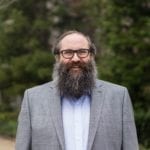
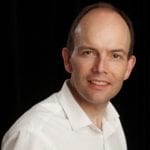

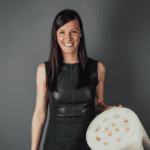
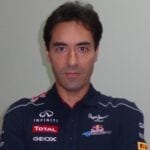
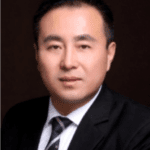

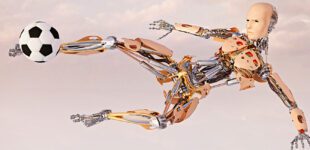

 Meaningful Momentum or Running in Place?
Meaningful Momentum or Running in Place? AI Through Our Ages
AI Through Our Ages Liquid Infrastructure: Our Planet's Most Precious Resource
Liquid Infrastructure: Our Planet's Most Precious Resource The Impact of Technology in 2025
The Impact of Technology in 2025 Quantum and AI: Safeguards or Threats to Cybersecurity?
Quantum and AI: Safeguards or Threats to Cybersecurity? Why AI Can't Live Without Us
Why AI Can't Live Without Us Bits, Bytes, Buildings and Bridges: Digital-Driven Infrastructure
Bits, Bytes, Buildings and Bridges: Digital-Driven Infrastructure Impact of Technology in 2024
Impact of Technology in 2024 Emerging AI Cybersecurity Challenges and Solutions
Emerging AI Cybersecurity Challenges and Solutions The Skies are Unlimited
The Skies are Unlimited Smart Cities 2030: How Tech is Reshaping Urbanscapes
Smart Cities 2030: How Tech is Reshaping Urbanscapes Impact of Technology 2023
Impact of Technology 2023 Cybersecurity for Life-Changing Innovations
Cybersecurity for Life-Changing Innovations Smarter Wearables Healthier Life
Smarter Wearables Healthier Life Infrastructure In Motion
Infrastructure In Motion The Impact of Tech in 2022 and Beyond
The Impact of Tech in 2022 and Beyond Cybersecurity, Technology and Protecting Our World
Cybersecurity, Technology and Protecting Our World How Technology Helps us Understand Our Health and Wellness
How Technology Helps us Understand Our Health and Wellness The Resilience of Humanity
The Resilience of Humanity Harnessing and Sustaining our Natural Resources
Harnessing and Sustaining our Natural Resources Creating Healthy Spaces Through Technology
Creating Healthy Spaces Through Technology Exceptional Infrastructure Challenges, Technology and Humanity
Exceptional Infrastructure Challenges, Technology and Humanity The Global Impact of IEEE's 802 Standards
The Global Impact of IEEE's 802 Standards Scenes of our Cyber Lives: The Security Threats and Technology Solutions Protecting Us
Scenes of our Cyber Lives: The Security Threats and Technology Solutions Protecting Us How Millennial Parents are Embracing Health and Wellness Technologies for Their Generation Alpha Kids
How Millennial Parents are Embracing Health and Wellness Technologies for Their Generation Alpha Kids Space Exploration, Technology and Our Lives
Space Exploration, Technology and Our Lives Global Innovation and the Environment
Global Innovation and the Environment How Technology, Privacy and Security are Changing Each Other (And Us)
How Technology, Privacy and Security are Changing Each Other (And Us) Find us in booth 31506, LVCC South Hall 3 and experience the Technology Moon Walk
Find us in booth 31506, LVCC South Hall 3 and experience the Technology Moon Walk Virtual and Mixed Reality
Virtual and Mixed Reality How Robots are Improving our Health
How Robots are Improving our Health IEEE Experts and the Robots They are Teaching
IEEE Experts and the Robots They are Teaching See how millennial parents around the world see AI impacting the lives of their tech-infused offspring
See how millennial parents around the world see AI impacting the lives of their tech-infused offspring Take the journey from farm to table and learn how IoT will help us reach the rising demand for food production
Take the journey from farm to table and learn how IoT will help us reach the rising demand for food production Watch technical experts discuss the latest cyber threats
Watch technical experts discuss the latest cyber threats Explore how researchers, teachers, explorers, healthcare and medical professionals use immersive technologies
Explore how researchers, teachers, explorers, healthcare and medical professionals use immersive technologies Follow the timeline to see how Generation AI will be impacted by technology
Follow the timeline to see how Generation AI will be impacted by technology Learn how your IoT data can be used by experiencing a day in a connected life
Learn how your IoT data can be used by experiencing a day in a connected life Listen to technical experts discuss the biggest security threats today
Listen to technical experts discuss the biggest security threats today See how tech has influenced and evolved with the Games
See how tech has influenced and evolved with the Games Enter our virtual home to explore the IoT (Internet of Things) technologies
Enter our virtual home to explore the IoT (Internet of Things) technologies Explore an interactive map showcasing exciting innovations in robotics
Explore an interactive map showcasing exciting innovations in robotics Interactively explore A.I. in recent Hollywood movies
Interactively explore A.I. in recent Hollywood movies Get immersed in technologies that will improve patients' lives
Get immersed in technologies that will improve patients' lives